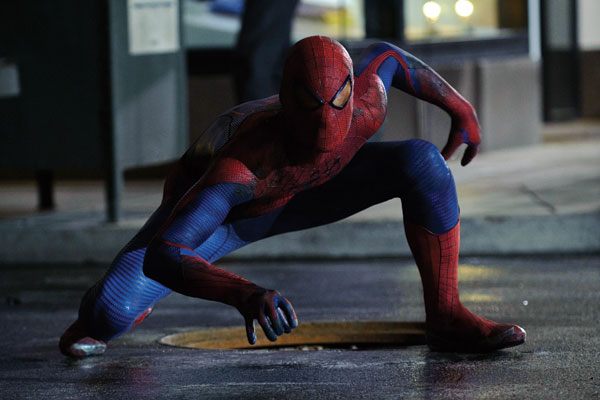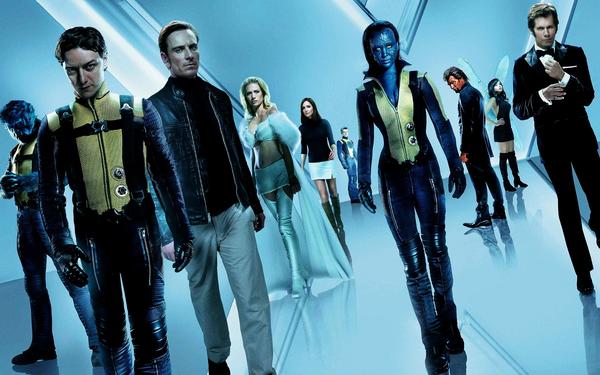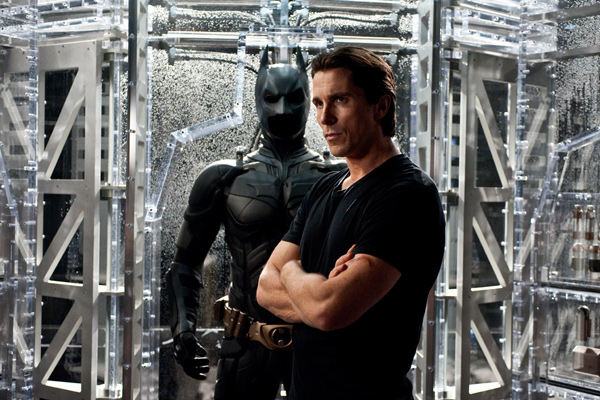I like Spider-Man. Who doesn't? He's Spider-Man. He can do whatever a spider can. He's a cultural icon, and people who wouldn't be caught dead with a comic book come in droves to see the movies starring ol' web-head. Spider-Man was a good start for the franchise, and Spider-Man 2 set a high-bar for superhero movies everywhere. I even think Spider-Man 3 gets dumped on more than it rightly deserves. So unlike a lot of people, I was cautiously optimistic when Sony announced they'd be making a fourth movie.
The newest entry in the series, The Amazing Spider-Man, didn't carry over any of the original talent behind Sam Raimi's trilogy, but there's still a lot to like here. Andrew Garfield looks the part more than Tobey Maguire ever did, and getting someone as impossibly cute as Emma Stone to play Gwen Stacey was a smart choice.

And I really liked Mark Webb's directorial debut, (500) Days of Summer, which seems to have informed a lot of how Webb's approached this multi-billion dollar franchise. Reviews have been positive, and having just seen it, I'm happy to say that what started out as an eleventh-hour dead-sprint to the shooting lot turned out to be adequate summer fare. As of Sunday, the movie pulled in $140 million within six days, just shy of the original (and least financially successful) "Spider-Man."
All that being said, part of me wanted this movie to fail. That's a pretty awful sentiment to have considering the amount of time and care that no doubt went into making this movie, as well as the future jobs that are dependent on its success. It's not an attitude I like to have about any movie, unless I think it's an unmitigated piece of garbage (which it isn't), or that a win for this one film will come at the cost of those to follow, which it certainly could be. While it's great that Sony seems to found a way to differentiate this Spider-Man reboot enough from its predecessors to justify its existence, fortune favoring the reanimation of franchise corpses that are barely cold sets a worrying precedent for things to come.
It's been no secret that The Amazing Spider-Man was made for reasons other than its opening weekend box office haul. To be more accurate, it's about the potential billions that could be made with more Spider-Men. Sony's control of the movie license requires that they make an actual movie out of said property within a certain amount of time, or the rights will default back to Marvel, just as they did en masse when comic book rights were snatched up back in the '90s before anyone got a clue of what to do with them. It's the same reason that "X-Men" movies continue to be released, despite their increasingly tangential link to the original trilogy.

The legality wrinkle explains why Spidey was AWOL while Manhattan was an alien tailgate party during The Avengers, despite the serious bank Marvel Studios would have made with just a cameo. The depressing part is that Sony is basically treating "Spider-Man" like a toy they have no interest in until their little brother wants it, and then just play with Spidey so that no one else gets to. The concerning thing is whether an unspectacular but nontheless strong debut for The Amazing Spider-Man will inspire other studios to pump out unnecessary sequels/prequels/reboots simply to keep the keys to a franchise.
Chris Nolan's 'Batman' trilogy is on track to deliver the coupe de grace final chapter to its story that Spider-Man couldn't, but that hasn't stopped Warner Bros. from already talking about rebooting the franchise. Since Warner and DC are nice and cozy under the Time Warner umbrella, there's less legal wrangling at play here, but it's still insane that more than a year before audiences get some kind of closure, Warner's attitude is "let it ride!"
Even failures are being gifted second chances based on hopes that audiences have short attention spans. Josh Trank, the director behind the inventive and original superhero movie Chronicle, recently got the chance to join the big leagues by being offered the chance to direct a Fantastic Four reboot, even after two subpar films in 2005 and 2007. The lesson: if at first you don't succeed, make a sequel. If that fails, wait five years and hope everyone forgets that the originals were a failure every which way but at the box office.

Comic books dominate the reboot discussion because it's inherent to the material. Right now, there are currently no less than six different lines of comics featuring Spider-Man, either in solo outings, as part of a Marvel team, or inhabiting alternate continuities. This almost non-existent regard for franchise distinction and the space-time continuum means there's no lack of source material to choose from, especially for characters as old as Peter Parker and the dark knight.
With so many different story permutations and character tweaks that have built-up over the years, it's not hard to see characters like Wolverine, Spider-Man and Batman becoming James Bond-esque movie properties, in which a new installment comes out every few years and approaches the material from a slightly different angle, while preserving a few staple themes and plot points.
That in and of itself isn't a terrible idea in the short term, but eventually, making the films will be even less dependent on earnest audience interest and their existence will be self-sustaining. Such a produciton cycle didn't do the Bond franchise any favors; I dare you to find someone who's favorite Bond movie came out between The Spy Who Loved Me and Licence to Kill. When this train of thought crosses over into franchises not based on continual reinvention, it'll be like when the pig flu combined with the bat flu in Contagion — mass destruction on a global scale.

Okay that's a little overdramatic, but it'll suck hard regardless. One of the movies I'm most excited for this summer is The Bourne Legacy, a side-quel to the most consistent trilogy of action films pretty much ever. It doesn't have franchise star Matt Damon, or director Paul Greengrass returning, but it does have franchise writer Tony Gilroy taking over for the latter. Problem is, the layperson won't give a hot damn who Gilroy is, so the success of Legacy will be judged on brand strength just as much as The Amazing Spider-Man. From there, it's not hard to envision Gilroy leaving the series and someone else taking over, turning the franchise into a perpetual motion machine, where creative husks serve as straight money makers.
Well, that's also being pretty worst-case scenario, as there's no reason to think that just because a property's reigns have been handed over to someone new, it's all a business transaction devoid of any inspiration. Part of what makes a series or character great is that they lend themselves to innovative and original stories within their identifying framework, so really, what I'm asking for isn't less of these movies, just have them less often. Give audiences time to miss seeing Spider-Man and Batman on screen, and let their returns occur at a time when it will actually mean something. At the very least, make these movies for reasons more compelling than legal ones. Spontaneity is great for a relationship and routine is a killer. If we start expecting a warmed-over rehash of familiar franchises every five years, we'll just have to start looking somewhere else for new entertainment.